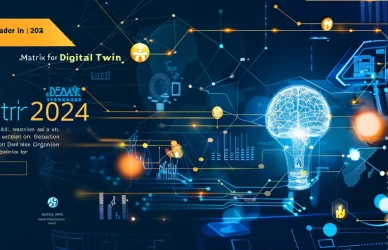At SAP TechEd 2024, one of the most groundbreaking announcements was the expansion of SAP’s AI assistant, Joule. Building on last year’s introduction, SAP has significantly enhanced Joule with the addition of collaborative AI agents, marking a major shift in how businesses can use AI to streamline complex workflows and boost productivity.
AI Agents and Multi-Agent Collaboration
These new agents aren’t just task-specific bots. They are deeply integrated into SAP’s ecosystem, allowing them to handle complex, multi-step business processes autonomously. This innovation enables AI agents to collaborate with each other across various business functions such as finance, procurement, and supply chain management. For instance, if a company is preparing a statement of work (SOW) for a new project, agents with expertise in planning, risk assessment, and finance can come together to deliver a complete solution.
This coordination is referred to as “multi-agent collaboration,” which dynamically adapts based on the task at hand. What sets these agents apart is their ability to dynamically adjust strategies in real-time, reflecting an advanced level of reasoning and problem-solving that goes beyond simple automation. The first wave of these agents is expected by the end of 2024, with custom agents following in 2025 through Joule Studio, a new component integrated into SAP’s Build platform.
Joule’s Expanded Role in the SAP Ecosystem
SAP’s goal is to embed Joule more deeply into its software stack, automating around 80% of the most common business tasks by year-end. This deeper integration means Joule isn’t just assisting with routine tasks—it’s becoming a key player in complex business decision-making.
The system uses data from SAP’s comprehensive Knowledge Graph, which connects information across the company’s portfolio to provide richer insights and context for decision-making. This new capability is expected to significantly reduce the complexity of manual data modeling, traditionally a time-consuming process.
Real-World Use Cases
Some real-world use cases for these collaborative agents include automating financial workflows, such as managing payments, ledger updates, and even handling disputes related to invoicing. These agents are designed to autonomously identify and resolve discrepancies, a task that would typically require significant human oversight.
Implications for SAP Users
However, not all SAP customers will have immediate access to these innovations. SAP’s new multi-agent systems will be available primarily to cloud customers using RISE with SAP and GROW with SAP contracts. On-premise customers may find themselves excluded from these features during the initial rollout. That said, SAP is positioning these agents as a key driver for companies to transition into the cloud.
Conclusion
SAP’s enhancements to Joule at TechEd 2024 illustrate a bold move towards a future where AI isn’t just a tool for automating tasks, but a collaborative partner in driving complex business processes. With the promise of real-world applications that can save time, reduce errors, and enhance decision-making, SAP is clearly positioning itself as a leader in enterprise AI.




